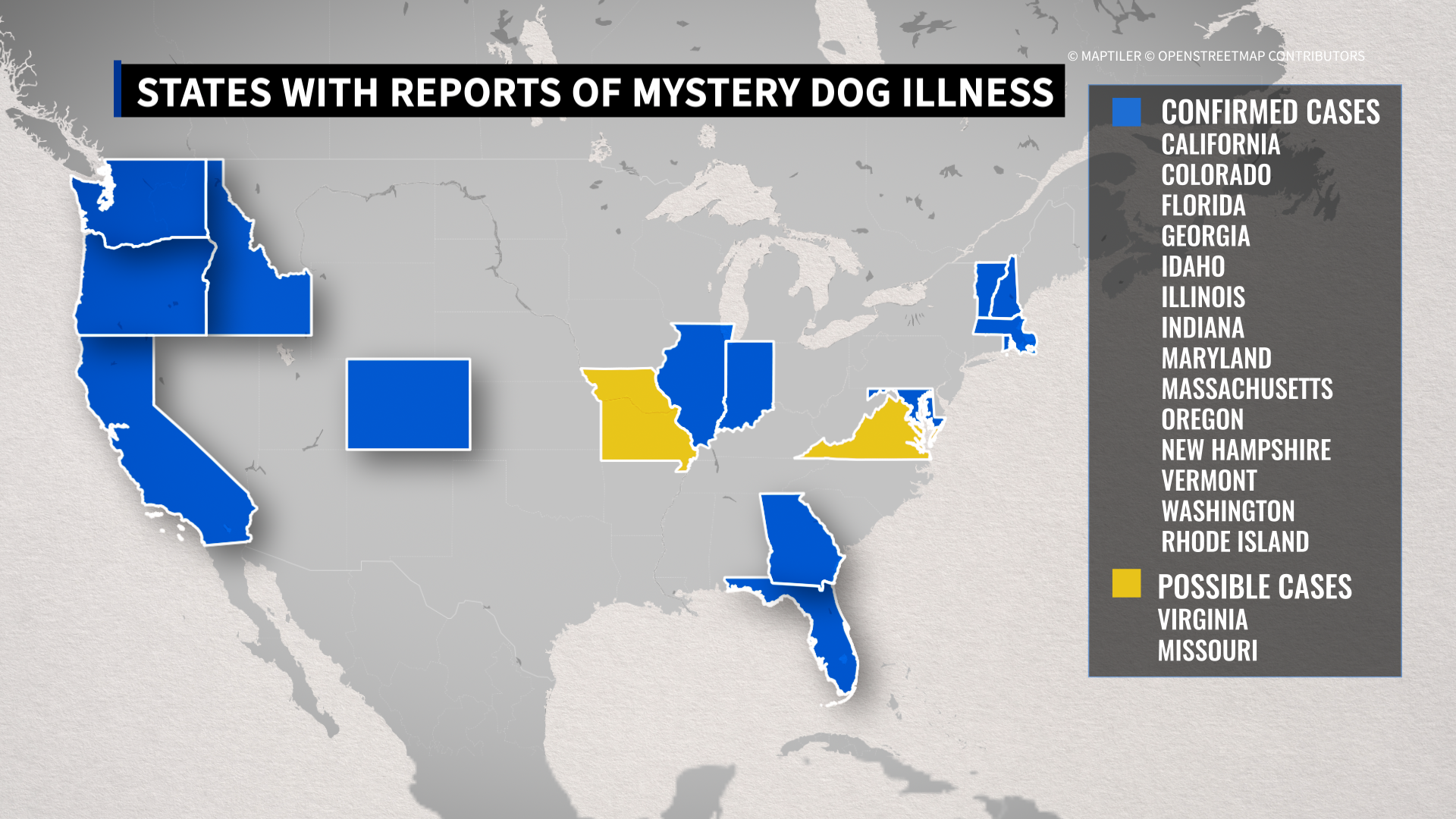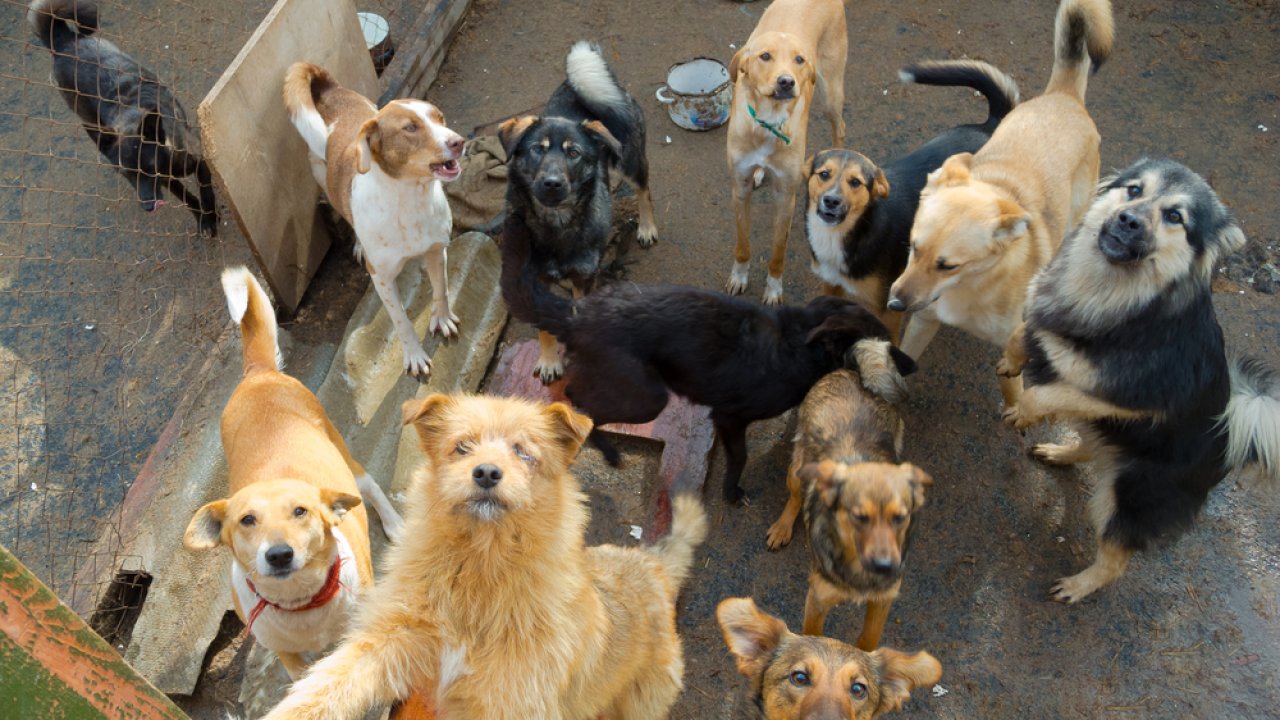Cases of an unknown and sometimes fatal respiratory dog illness have now been reported in over a dozen states across the U.S., according to multiple sources.
Those states include California, Colorado, Florida, Georgia, Idaho, Illinois, Indiana, Maryland, Massachusetts, New Hampshire, Oregon, Vermont, Washington and Rhode Island. All have reported cases either officially or anecdotally, according to the nonprofit American Veterinary Medical Association and other independent sources.
The illness looks similar to known canine infections like kennel cough and strep zoo, starting with a cough before the onset symptoms of loss of appetite, runny nose, lethargy and sometimes a low fever. But while kennel cough, which already has an available vaccine, typically clears up within about a week, this unknown illness lasts much longer and can sometimes turn into a fatal case of pneumonia.
Researchers and vets have also said the illness is not responding to standard treatments such as antibiotics. It appears to be primarily spreading through dog-to-dog contact in social settings like shelters, kennels and dog parks.
Scripps News first reported the rise of the illness on Nov. 13 in both Colorado and Oregon.
According to the Oregon Veterinary Medical Association, official reports of the sickness first started popping up in their state around August.
Over in Colorado, Dr. Amanda Cavanagh at the Colorado State University Veterinary Teaching Hospital told Scripps News Denver they had seen a 50% increase in the number of dogs being treated for a cough.
The New Hampshire Veterinary Diagnostics Lab, which is perhaps leading the country right now in its research of the illness, began investigating it around this same time last year after hearing some reports around the New England area of the mysterious respiratory illness.
So far, most cases appear to be concentrated along the West Coast.
 Scripps News
Scripps News
Scripps News Kansas City in Missouri spoke with a veterinarian who is already warning dog owners in the area that it may not be long before they start seeing cases pop up, especially with more families — pets included — traveling for the holidays.
In Virginia, Scripps News Richmond spoke with a dog owner who recently lost their 2-year-old Yorkie. She said all of her dog’s symptoms aligned with reports on the mystery illness and believes that may have been what led to her Yorkie’s death.
There have already been cases of the illness reported in Florida, and a local veterinarian told Scripps News Tampa Bay she’s seen at least 30 cases of the illness within the last six months.
Meanwhile, Scripps News Cincinnati reported animal care experts in the tri-state area of Ohio, Kentucky and Indiana are not seeing the illness — although other parts of Indiana have reported cases.
From veterinarians, to shelters to scientists investigating what the illness is, the advice has remained the same: Keep your dogs at home.
While many plan to travel with their dogs or board them at a local kennel for the holidays, it’s probably not the safest idea right now. But if you don’t have a choice, experts say to at least make sure your dogs are up to date on all of their vaccinations beforehand.







